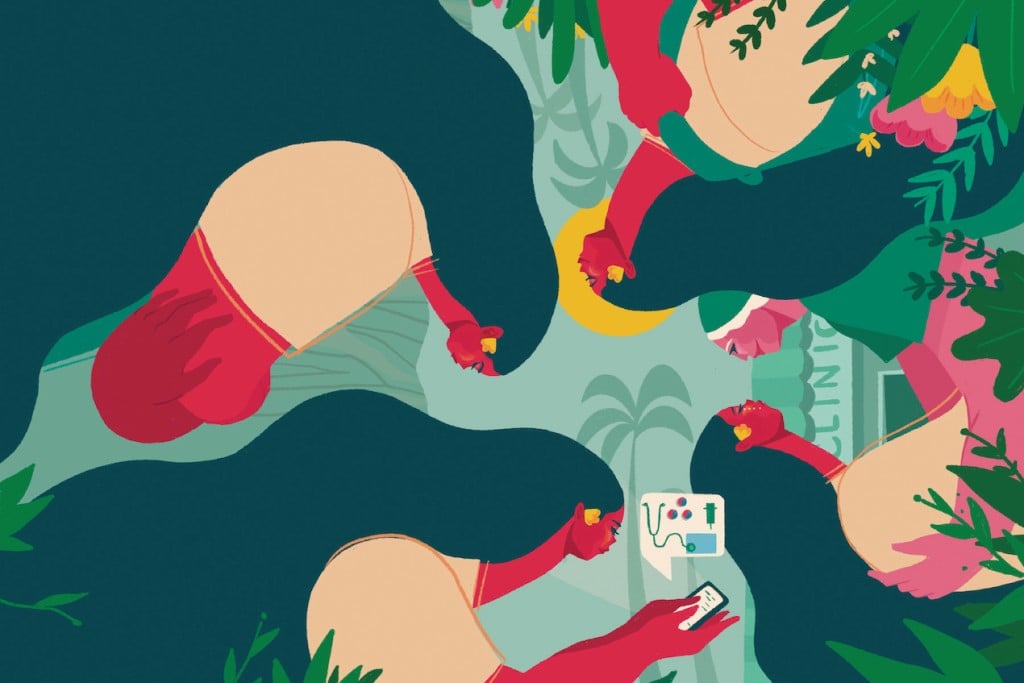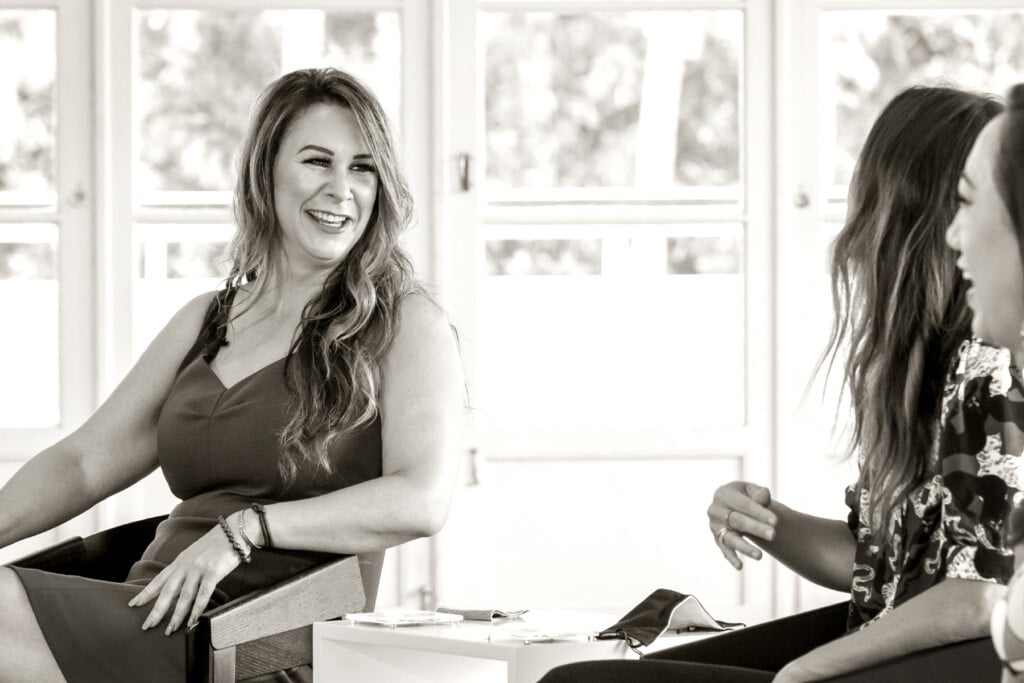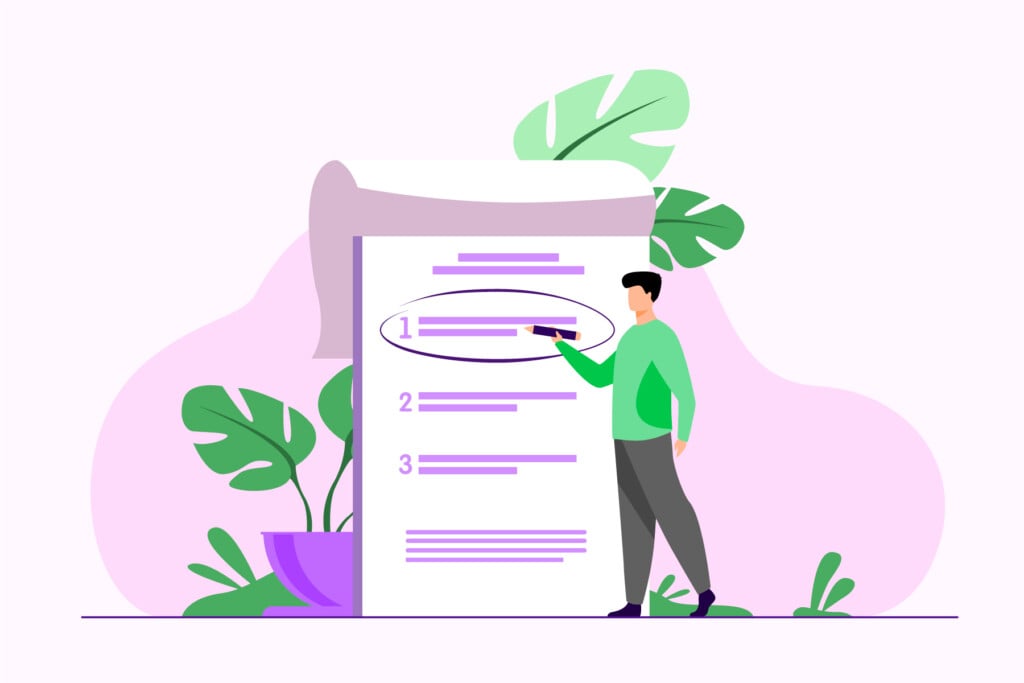The Reality of Abortion in Hawai‘i
Abortion is legal in the Islands, but access and support fall short. Khara Jabola-Carolus of the State Commission on the Status of Women explains what women really need.

Q: Why is it important for Hawai’i to maintain a woman’s right to an abortion?
Bans on abortion cripple women’s ability to participate in public life and bans have been known to cause death. So I think it’s a matter of life and death.
You also divide the community against itself and put women in a very subordinate, controlled position within their community. That weakens our ability to be united and loving as a community. So I think it’s an absolute requirement that we keep abortion legal to preserve a harmonious and happy Hawai‘i.
Q: Often people have a legal right, but they aren’t always able to exercise that right. What difficulties do women face if they want an abortion in Hawai’i?
First, knowledge is power. And I would say the average woman, girl or youth doesn’t know offhand what to do if they get pregnant and they can’t continue that pregnancy. They would have to turn to Google or friends because our schools and parents often don’t talk about abortion. This enforced ignorance is the first barrier.
I don’t say ignorance to blame the women, but the ignorance around abortion has social and political causes. So that makes it a barrier. Some communities are isolated culturally and tend to be more patriarchal. I come from a very religious Filipino community where you can be isolated by the ideology that’s dominant in your community. I’m not blaming Filipino culture, but particular politics have become dominant in that community.
Cost can be a barrier if you have gaps in insurance coverage. There’s no man-date in Hawai‘i that requires insurance coverage for abortions. And even if your insurance covers an abortion, there are costs that aren’t covered, like an ultrasound, travel expenses or supplies.
Q: What kind of supplies?
You can go through like a hundred diapers with an abortion. I had to send people out to get diapers, Depends. We can’t assume everyone can afford that, especially if they need to hide their abortion because they live in an multigenerational household. If you’re in a family, you’re either going to have to tell everybody or no one or have one ally in your family.
Q: What are the special challenges women under age 18 face?
They probably face the biggest challenge. If you’re 14 or older, you can consent to an abortion without parental knowledge or consent. But if you’re younger than that and your parents don’t know or are unsupportive, it can get really challenging.
Even for that 14-year-old, just knowing who to turn to is going to be really important, but how do we reach them if that’s not permissible within the state Department of Education? We’re just deferring to principals to decide what information gets to their students.
How do we reach a 14-year-old, especially when we know a lot of the time she’s not going to be pregnant from someone her own age. It might be an older man and a situation that is aptly defined as predatory or sexual violence.
Sixty-five percent of teenage pregnancies in Hawai‘i result in a live birth. That’s ages 15 to 19. That should startle us.
Q: How easy is it to obtain abortion pills in Hawai’i?
Hawai‘i is considered a role model in terms of telemedicine, which is a process whereby you go to a local clinic to get your ultrasound and then an abortion care provider mails you the abortion pill. We were very early to do that and it’s widely available.
However, it’s time sensitive. If you are nearing that 11-week cusp, the abortion pill may not be as effective. And after that date, you really can’t use that option.
A pill abortion can be harder than a surgical abortion because you go through the extended process on your own. When you go into the clinic, they either put you under or give you pain medication and a doctor oversees the procedure. Whereas the effects of an abortion pill can last up to four weeks and you’re soaking through diapers. Maybe on the first day it’s debilitating and then you get hit with labor-like contractions, essentially seven days later. And then you’re bleeding out. It’s very difficult for the average Hawai‘i woman who’s working or caregiving to go through this unpredictable process. Safe does not mean easy.
Q: Surveys show a majority of Hawai’i’s people are pro-choice but not everyone.
Absolutely not. A lot of abortion work here is fear driven. People are scared of the community rather than wanting to lean in and engage communities. The last time we talked with ACOG (the American College of Obstetricians and Gynecologists), there were only four physicians in all of Hawai‘i who were advertising that they provide abortions. We’re not creating an incentive to provide abortions. I think that’s one thing we could fix.
Q: Are doctors reluctant to provide that service because of a feared backlash?
Absolutely, I can say that with confidence.
After the U.S. Supreme Court reversed Roe v. Wade and Planned Parenthood v. Casey, there were three groups that formed as rapid response. One was convened by U.S. Sen. Mazie Hirono. Then there’s one state Rep. Della Au Belatti convened: That’s mostly government but has key stakeholders like the OB-GYN association and nurses, hospitals.
Then there’s the broad statewide coalition that we (the Hawai‘i Commission on the Status of Women) convened called the Hawai‘i Abortion Collective. We’re at 50 members. It’s the first time I’ve seen statewide action. We also have faith communities involved who are pro-abortion access. The first order of business was creating a comprehensive guide. Now there is a central source of information on abortion in Hawai‘i. (The Abortion Guide was published Aug. 31; find it at tinyurl.com/NewHIGuide.)
We identified the barriers and needs in Hawai‘i, and doctors being scared (to provide abortions) is one of the top problems.
Q: Are the four doctors who publicly provide abortion services harassed?
Yes, they report having to have security and safety plans. ACOG provided a security training session on what to do in the event of harassment and creating a safety plan. The harassment is real.
There are abortion providers on Hawai’i Island, Kaua‘i, Maui and O‘ahu. There are none on the other islands to our knowledge, though there are clinics on Lana‘i and Moloka‘i that provide ultrasounds, referrals to telemedicine and other services so you can get the abortion pill.
Q: Is abortion taught at UH’s Burns Medical School?
Yes, there is a training program, but my understanding is they’ve had to fund-raise for that program in the past. One of the main issues is not enough training and trainers. And so, as we talk about policy, that’s one of the issues: How do we get funding? And then: How do we incentivize doctors and nurses to provide these services?
Q: How should local companies and nonprofits support a woman’s right to choose?
I think first is create a workplace policy that specifically includes abortion in their leave policy. As a mother of two, I’ve been through live births. The time after an abortion is very similar to the postpartum period. And it’s unpredictable. I would say for a medication or pill abortion, you definitely need two weeks off.
I think it should be paid leave, because even if you are absolutely convinced in your decision to have an abortion, you can’t escape your upbringing and the cultural infusion of stigma. More often than not, patients need grief counseling after their abortion. Even if it was absolutely the right decision, you’re still going to be grappling with all the guilt that’s heaped on you by the world and politics.
So the physical part is grueling. It’s shocking if you don’t know what to expect, and I say that from personal experience. Even though I’m out there as a feminist and executive director of the women’s commission, I wasn’t raised on another planet. I’m from Earth and the United States and I wasn’t immune to any of that.
So I would say two weeks off minimum is a supportive and necessary policy because a week or 10 days after you took the pill, you can start getting contractions because the abortion part didn’t happen until then.
Q: Should the purpose of your leave be kept confidential because of that stigma you talk about?
Absolutely. And I think that another thing businesses could do is ensure that whatever insurance they’re providing has comprehensive coverage for abortion. Also, employers and employees should share the link to The Abortion Guide in their employee manual.
Another thing: Do not donate to or support any candidate who opposes women’s equality. That should just be a baseline for who you support as a candidate.
Q: Do you sense that support for choice in Hawai’i has increased since the Supreme Court’s Dobbs decision?
It’s at least reinvigorated the resolve to fight for more. There’s a lot of energy and support for abortion rights now. If anything, we’re going to expand the right to abortion and access and resources in 2023. I think the Dobbs decision has unleashed a wave of dedicated and angry people.
Q: What policy changes do you want to see at the state legislature in January?
We’re still in talks with legislators and planning, but I think one of the biggest things is comprehensive insurance coverage for abortion. Making sure any private insurer that does business in Hawai‘i needs to cover abortion is number one, and also provide confidentiality. Let’s say you’re on somebody else’s insurance plan – parent, spouse – you don’t want that itemized on the bills. You might face serious repercussions, maybe even domestic violence if they see that bill. So women don’t feel deterred because they’re scared that they’ll be outed by their insurer.
I know doctors also want legal protection if they provide abortions to out-of-state patients from hostile states.
Q: There are so many things I and other men often fail to understand about the challenges women face. I know it’s something that requires a much broader discussion, but can you clue us in on some of the most important aspects men need to understand?
I’m going to try to answer that as a mother. We are all raised by our mothers, but our mother is two people. She’s the person who you imagine her to be and the experience she reveals to her family. And then there’s the reality of your mother, a person who is assailed throughout her life by injustices big and small, and trying to figure out how to exist in this body, in an economy that works against it, because of the whole spectrum of having a period, to becoming pregnant intentionally or unintentionally, going through pregnancy and going through childbirth, and later menopause.
All of that gives you an inherent disadvantage in a competitive labor market – what we call discrimination. And each of those experiences that I mentioned – menstruation, the graphic parts of pregnancy that only your partner knows – all those things are either taboo or they’re too much information or shunned or too risky to share.
That’s why your mom is really two people, and she’s had this inner life that you’re not really exposed to.
I never shared this publicly, but I’ll share it with you, and it’s fine to be on the record, but I had one abortion in my life and it was after I had both my kids and it was so hard to hide.
At one point, my 6-year-old son was so worried about me. “What’s happening to you?” And I had to decide whether to tell him or not, and I really, really struggled with it. And I decided to tell him, first of all, because children are so smart, and secondly, because I knew that I wanted him to see what women really go through from this age forward, so that when he is an adult and interacting with adult women, and they tell him these things, he’s sensitive to it, he believes them and he doesn’t brush it off. He stops, he thinks, “Oh my God, I know what an abortion was like and I’m here for you.”
I didn’t guilt him and I didn’t put the abortion on him at all, but I wanted that he understood it was a decision I was making, because I was thinking about so many things. And that it was really hard. I don’t know if I made the right decision to tell him; time will tell.
But I think that if you’re a woman and you feel so isolated throughout your life, because you’ve kept so many secrets, you start getting resentful and I didn’t want to feel resentful toward him in the future or that I had kept such a huge part of myself from him.
Recommended: Hawai‘i Economics and Economists in the Spotlight, 20 for the Next 20: Khara Jabola-Carolus






